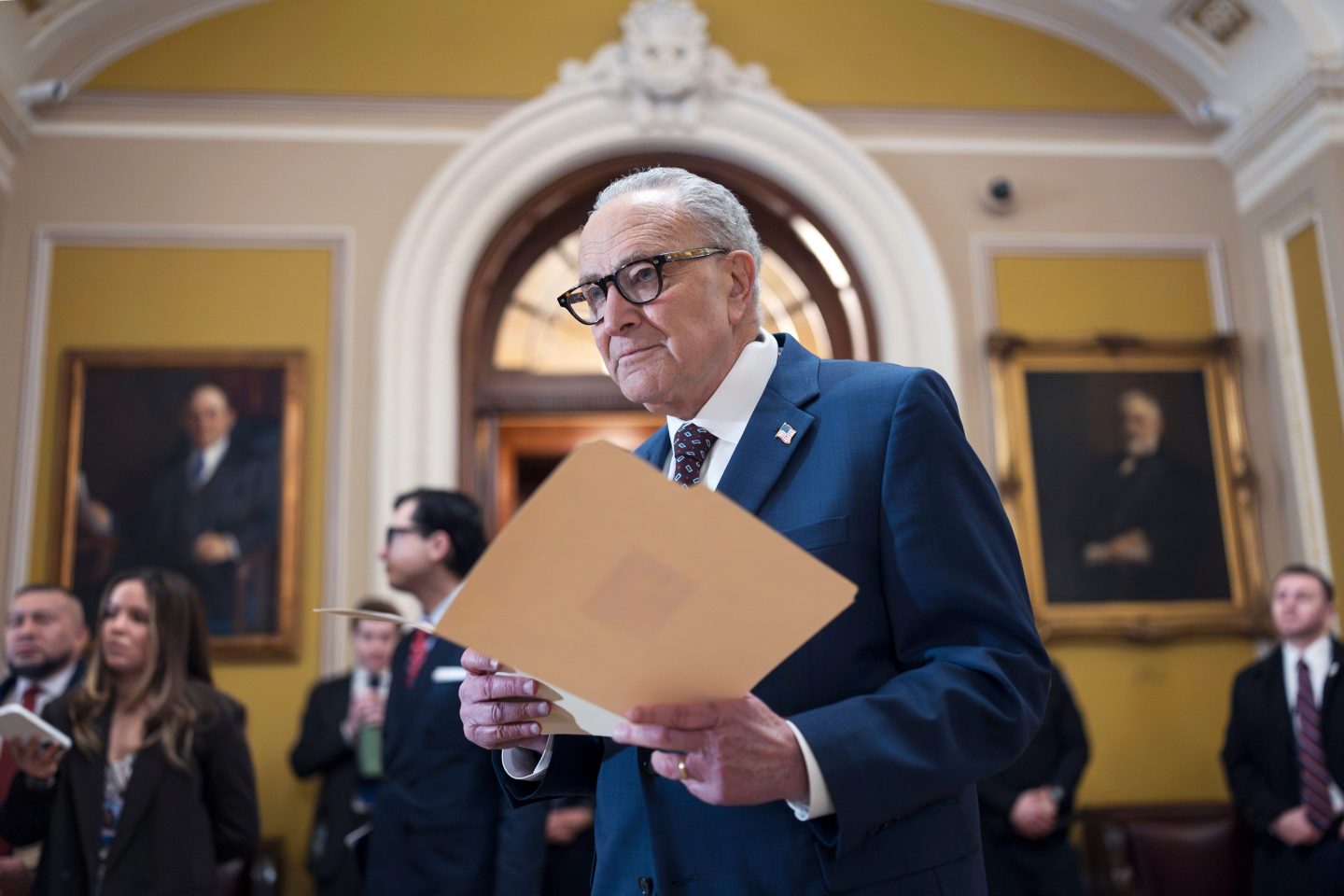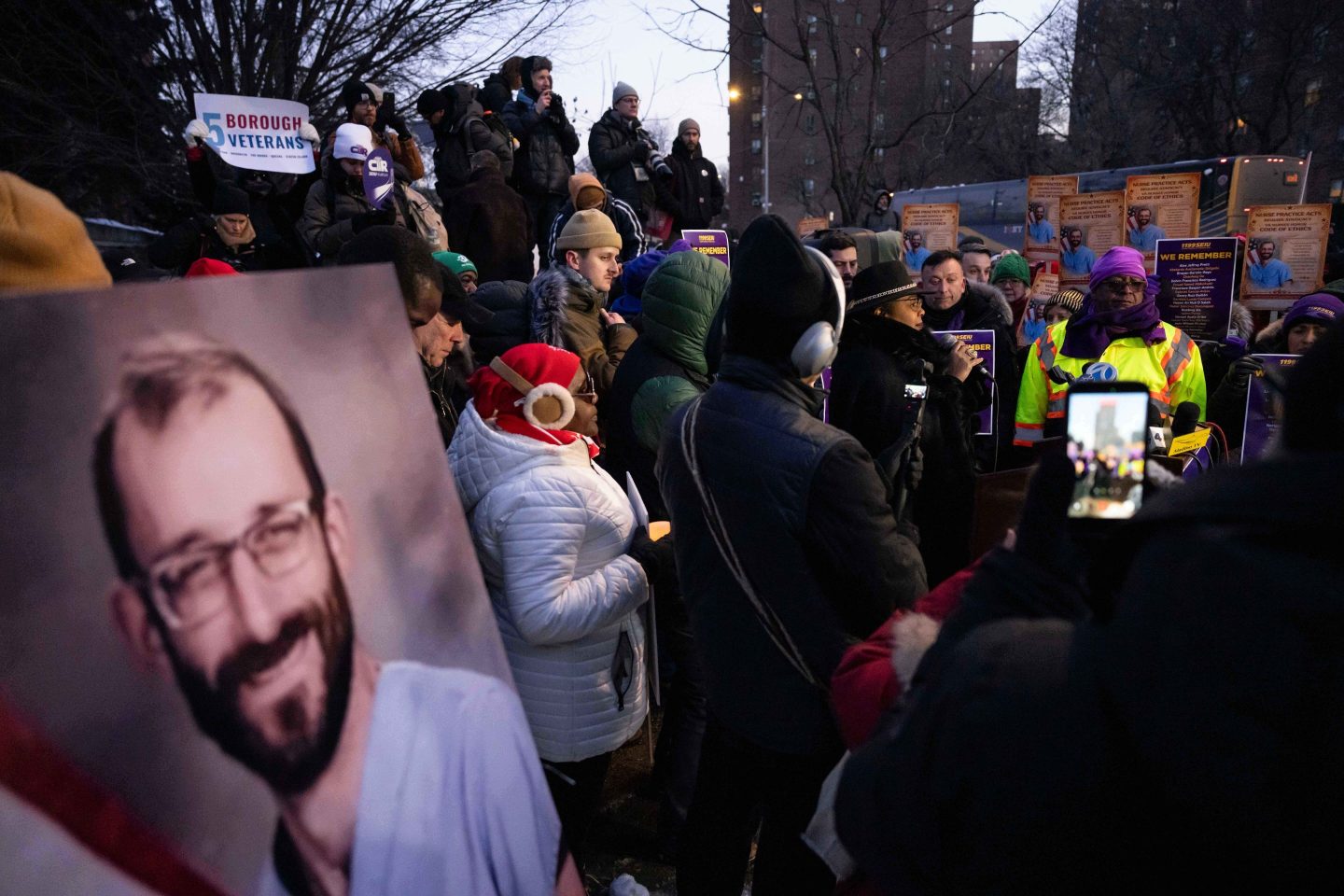The government shutdown stretched into its 40th day Sunday even as senators held a weekend session in hopes of finding an end to the impasse that has disrupted flights nationwide, threatened food assistance for millions of Americans and left federal workers without pay.
The Senate has shown few signs of progress over a weekend that could be crucial for the shutdown fight. Republican leaders are hoping to hold votes on bills that would reopen the government into January while also approving full-year funding for several parts of government. The necessary Democratic support for that effort was far from guaranteed.
“We’re only a handful of votes away” from passing legislation to reopen the government, Senate Majority Leader John Thune, R-S.D., said Saturday.
Democratic leaders are pushing hard for an extension of subsidies for health plans offered under the Affordable Care Act marketplace. Republicans have rejected that offer, but signaled openness to an emerging proposal from a small group of moderate Democrats to end the shutdown in exchange for a later vote on the “Obamacare” subsidies that make coverage more affordable.
For those enrolled in health exchanges under that law, premiums on average are expected to more than double next year if Congress allows the enhanced subsidies to lapse.
Vermont Sen. Bernie Sanders, an independent who caucuses with Democrats, said the pledge to hold a vote on extending the subsidies would be a “wasteful gesture” unless “you have the commitment of the speaker of the House that he will support it and that the president of the United States will sign it.”
President Donald Trump has made clear he is unlikely to compromise any time soon. On Sunday, he pressed Republicans once more to abolish the Senate’s filibuster rules that prevent the chamber from advancing on most legislation unless there is support from 60 senators. “Be the Smart Party,” he said in a social media post.
Moderates continue to negotiate
Sen. Jeanne Shaheen, D-N.H., and others have been discussing bills that would pay for parts of government — food aid, veterans programs and the legislative branch, among other things — and extend funding for everything else until December or January. The agreement would only come with the promise of a future health care vote.
It was unclear whether enough Democrats would support such a plan. Even with a deal, Trump appears unlikely to support an extension of the health benefits. House Speaker Mike Johnson, R-La., has said he would not commit to a health vote.
Republican leaders in the Senate only need five additional votes to fund the government, and the group involved in the talks has ranged from 10 to 12 Democratic senators.
Some Republicans have said they are open to extending the COVID-19-era tax credits as premiums could skyrocket for millions of people, but they want new limits on who can receive the subsidies. They lined up Saturday to take to the Senate floor and argue that subsidies for the plans should be routed through individuals.
“We’re going to replace this broken system with something that is actually better for the consumer,” said Sen. Lindsey Graham, R-S.C.
“THE WORST HEALTHCARE FOR THE HIGHEST PRICE,” Trump termed it in a post Sunday.
Republicans eye new package of bills
Trump wants Republicans to end the shutdown quickly and scrap the filibuster so they can bypass Democrats altogether. Vice President JD Vance, a former Ohio senator, said Republicans who want to keep the filibuster are “wrong.”
But Republicans have rejected Trump’s call, with Sen. James Lankford, R-Okla., telling NBC’s “Meet the Press” on Sunday that because of the filibuster, “the Senate is the only place in our government where both sides have to talk to each other. That’s a good thing for America.”
Thune is eyeing a bipartisan package that mirrors the proposal the moderate Democrats have been sketching out. What Thune, who has refused to negotiate, might promise on health care is unknown.
The package would replace the House-passed legislation that the Democrats have rejected 14 times since the shutdown began Oct. 1. The current bill would only extend government funding until Nov. 21.
A choice for Democrats
A test vote on new legislation could come in the next few days if Thune decides to move forward.
Then Democrats would have a crucial choice: Keep fighting for a meaningful deal on extending the subsidies that expire in January, while prolonging the pain of the shutdown? Or vote to reopen the government and hope for the best as Republicans promise an eventual health care vote, but not a guaranteed outcome.
Senate Democrat leader Chuck Schumer argues Republicans should accept a one-year extension of the subsidies before negotiating the future of the tax credits.
“Doing nothing is derelict because people will go bankrupt, people will lose insurance, people will get sicker,” Schumer said in a floor speech Saturday. “That’s what will happen if this Congress fails to act.”
___
Associated Press writers Seung Min Kim, Joey Cappelletti, Mary Clare Jalonick and Lisa Mascaro contributed to this report.












